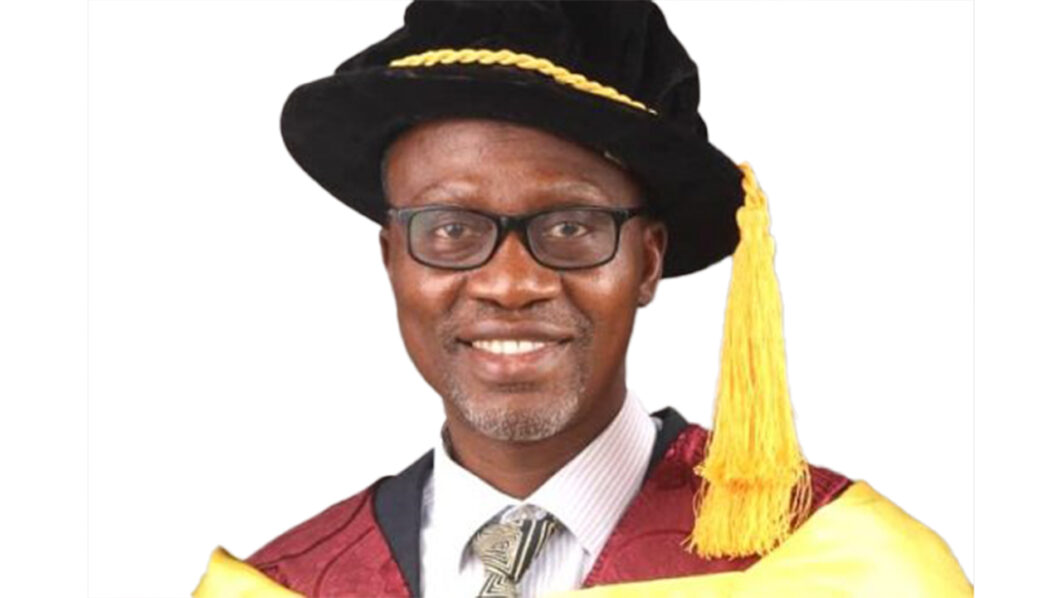Education
Buhari okays N320.3bn intervention fund for tertiary institutions

Buhari okays N320.3bn intervention fund for tertiary institutions
President Muhammadu Buhari has approved the disbursement of N320.3bn as intervention funds for public tertiary institutions in the country.
Executive Secretary of the Tertiary Education Trust Fund (TETFund), Sonny Echono, said this at a workshop with heads of beneficiary institutions in Abuja on Wednesday.
Echono said the 2023 intervention cycle would see each university receive the sum of N1,154,732,133.00 while each polytechnic and college of education would get N699,344,867.00 and N800,862,602 respectively.
READ ALSO:
Soyinka knocks Datti, ‘Obidients’, recalls advising Tinubu, Atiku not to contest
Motorcyclists kill Police Inspector, injure DPO in Lagos
Woman kills friend who snatched her boyfriend 10 years ago
“I am pleased to inform you that Mr. President has approved the 2023 disbursement guidelines in the total sum of N320,345,040, 835 (three hundred and twenty billion, three hundred and forty-five million, forty thousand, eight hundred and thirty five naira only). On the basis of this, each university shall get, for the Year 2023 intervention cycle, the total sum of N1,154,732,133.00,” he said.
This comprises N954,732,123.00 as annual direct disbursement and N200million as zonal intervention. Similarly, each polytechnic shall get N699,344,867.00 comprising of N569,344,807.00 as annual direct disbursement and N130million as zonal intervention, while each college of education shall get N800,862,602 comprising of N670,862,602.00 as annual direct disbursement and N130million as zonal intervention.”
Echono said the figure “represents the highest disbursement to each beneficiary institution since the inception of TETFund”.
The TETFund executive secretary said allocation to the tertiary education sector increased significantly under Buhari.
He said between 2015 and now, a total of N1.702 trillion has been disbursed to public universities, polytechnics and colleges of education compared to N1.249 trillion disbursed from the inception of the fund in 1993 up to 2014.
“This remarkable success is due to sustained efforts at expanding and increasing efficiency of collection of the education tax and added impetus is the gracious approval of Mr. President for an increase in education tax from 2.0% to 2.5% in the year 2021,” he added.
Buhari okays N320.3bn intervention fund for tertiary institutions
Education
Canadian province opens 2025 government internship programs for international students

Canadian province opens 2025 government internship programs for international students
The Government of Prince Edward Island (PEI), a Canadian province, is inviting applications for its 2025 Internship Program.
This opportunity allows international students and recent graduates to gain experience working within the provincial government.
The internship program, which is a one-year temporary job assignment, offers participants the chance to build skills and gain professional experience in various PEI government departments.
According to the Prince Edward Island, the program also provides access to workshops, networking events, and other professional development resources to help interns grow in their careers.
The PEI internship program is set to begin in May 2025 and runs for one year. Interns will have the opportunity to work in multiple government departments, participating in workshops and professional development activities. These include career planning, conflict management, emotional intelligence, and training on equity, diversity, and inclusion (EDI), as well as anti-racism in the workplace.
READ ALSO:
- Police kill three suspected kidnappers, arrest two others in Imo
- Lagos govt seals Coca-Cola, Guinness, Peak Milk
- Makinde speaks on Sharia court controversy in Oyo
Additionally, the program provides a platform for;
- Networking,
- Helping interns to connect with government professionals and
- Build valuable relationships within the public service sector.
- Interns will also receive support to help them understand eligibility for government jobs and navigate potential future opportunities in the public service.
Eligibility and application requirements
To be eligible for the program, applicants must have completed a;
Post-secondary program within the past 36 months. Additionally,
- Candidates should be Canadian citizens, permanent residents, or eligible for a Canadian work permit.
- International students who meet these requirements are encouraged to apply.
Applications are currently being accepted, and interested candidates must submit their applications through the official PEI Internship Program Portal.
Interviews for shortlisted candidates will be held on March 4th and 5th, 2025. The internship program will begin in May 2025.
How to apply and important dates
Applicants can apply online through the official PEI Internship Program Portal.
Additional details, including position descriptions and participating departments, are available on the official website of the Government of PEI.
Canadian province opens 2025 government internship programs for international students
Education
Two ex-VCs, JAMB registrar to attend Prof. Ibraheem UNILAG inaugural lecture Wed

Two ex-VCs, JAMB registrar to attend Prof. Ibraheem UNILAG historic inaugural lecture Wed
- History beckons as Mass Comm alumnus delivers inaugural lecture Wed
History will be made this week Wednesday December 18, 2024 at University of Lagos when an alumnus of the university’s Mass Communication Department, Ismail Adegboyega Ibrahim, professor of journalism and communication studies, will deliver inaugural lecture as a lecturer of the department.
Ibraheem, a 1990 graduate of the university, returned to the institution in 2011 as a lecturer.
It is the first time a former student of the department will be delivering an inaugural lecture 58 years after its establishment.
Ibraheem, director of International Relations, Partnerships and Prospects at the UNILAG, will speak on “Casino Journalism and the End of History.”
The university’s Vice-Chancellor, Professor Folasade Ogunsola, will chair the event, according to a statement from the institution.
Two former vice-chancellors of the university, Professor Rahamon Bello and Professor Oluwatoyin Ogundipe, are expected to grace the lecture along with the Registrar of the Joint Admissions and Matriculation Board (JAMB), Professor Is-haq Oloyede, among others.
The lecture is scheduled for 4pm at the J.F. Ade. Ajayi Auditorium, UNILAG, Akoka.
Members of the University Community and general public are invited to join the lecture physically or virtually via Zoom Meeting ID:862 1255 2361.
Education
Austria offers scholarship grant for int’l postgraduate, research students

Austria offers scholarship grant for int’l postgraduate, research students
The Republic of Austria is offering an opportunity for international postgraduate students, PhD candidates, and postdoctoral researchers through the Ernst Mach Scholarship 2025.
Managed by OeAD-GmbH, Austria’s agency for education, this scholarship aims to support talented individuals in advancing their academic and research careers in Austria.
Details of the scholarship program
According to OeAD, the Ernst Mach Scholarship is open to students and researchers from various academic disciplines. This includes areas such as;
- Natural sciences
- Technical sciences
- Human medicine
- Health Sciences
- Agricultural sciences
- Social sciences
- Humanities, and arts.
The scholarship provides funding for semester or one-year grants, with research grants lasting from one to nine months, making it accessible to a broad range of applicants.
Benefits of the Ernst Mach scholarship
The scholarship offers numerous benefits to successful applicants.
- Recipients will receive a monthly stipend of €1,300 for the duration of their stay in Austria.
- Accommodation assistance is available, with affordable housing options ranging from €330 to €800 per month.
- OeAD will also provide administrative support to help applicants find suitable housing.
READ ALSO:
- Afe Babalola gets court order banning publication, sale of Dele Farotimi’s book
- Over 50 nuisance taxes will be scrapped — FG
- BREAKING: Blackout as National grid collapses again, 12th time in 2024
Grant holders will receive guidance on obtaining health insurance accepted in Austria, with a cost ranging from €55 to €200 per month. The scholarship also waives tuition fees at public universities, further reducing the financial burden on participants.
A travel subsidy of up to €1,200 is available for applicants from eligible developing countries, with travel invoices required for reimbursement. Moreover, recipients will have the opportunity to build valuable connections with top researchers and institutions in Austria, which can significantly enhance their academic and professional networks.
Eligibility criteria for applicants
The Ernst Mach Scholarship is open to early-career academics who are passionate about advancing their research. To be eligible, applicants must be;
- Postgraduate students pursuing a PhD outside Austria or postgraduates and postdoctoral researchers looking to conduct research in Austria.
- Additionally, postdocs employed at universities outside Austria are also eligible to apply.
- Applicants must be 35 years old or younger (born on or after October 1st, 1989) and should not have lived, studied, or worked in Austria for more than six months prior to applying.
- Proficiency in English or German is required to ensure effective communication during the research process.
How to apply for the Ernst Mach Scholarship
To apply for the Ernst Mach Scholarship 2025, interested individuals must visit the official OeAD-GmbH website.
The application deadline is February 1st, 2025. Applicants should ensure that they meet the eligibility requirements and submit all required documents before the deadline.
Austria offers scholarship grant for int’l postgraduate, research students
-

 metro3 days ago
metro3 days agoFarotimi to pursue disbarment over arrest, defamation allegations
-

 Business2 days ago
Business2 days agoReal reason Dangote, NNPC drop petrol price — IPMAN
-

 Health2 days ago
Health2 days agoABU Teaching Hospital will begin kidney transplant in 2025 – CMD
-

 Sports1 day ago
Sports1 day agoAnthony Joshua prostrates before Governor Abiodun during Ogun visit
-

 metro3 days ago
metro3 days agoNigerian govt urged to intervene in Mozambique post-election violence
-

 metro23 hours ago
metro23 hours agoWanted terrorist commander, Bello Turji, a dead man walking – DHQ
-

 metro21 hours ago
metro21 hours agoFour countries that won’t celebrate New Year
-

 metro1 day ago
metro1 day agoN180m not missing from my account, it was all a plan – Verydarkman











